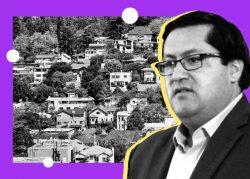Palo Alto may designate more buildings or districts as historic, a move that could be the latest attempt by a California community to skirt a sweeping state law aimed at creating more affordable housing.
A staff report to be considered today by the City Council says it could add already surveyed properties to local, state or national registers, limiting the impact of Senate Bill 9, which makes it easier to split parcels zoned as single-family units into two parcels, the Mercury News reported. Some 165 properties and several districts are qualified for preservation.
One council member said the city was simply updating its historic register, not trying to undermine SB 9. “We need to update the registry before potentially losing sites with historic value,” Greer Stone said.
Pasadena struck a similar tone when it passed an “urgency ordinance” seeking to exclude certain historic areas and properties from the law, drawing a rebuke from California Attorney General Rob Bonta, who called the move “disappointing” and said it violated SB9. While the law does allow exemptions for landmarks, historic property, or historic districts, the law doesn’t apply to “landmark districts,” Bonta wrote this month to Pasadena Mayor Victor Gordo.
About 30 communities have tried in some form to avoid SB9 since it went into effect on Jan. 1, including the wealthy town of Woodside, whose effort to declare itself a habitat for mountain lions drew national headlines and a similar admonition from Bonta before city officials withdrew it. Redondo Beach Mayor Bill Brand is leading a proposed ballot initiative that would block the housing law.
UC Berkeley’s Terner Center has estimated that SB9 could add 700,000 housing units to the current feasible development potential of 1.8 million, a 40 percent increase.
[The Mercury News] — Gabriel Poblete
Read more


